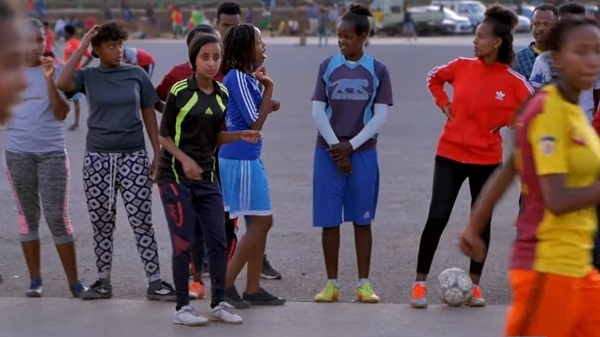
The Ethiopian government has made gender equality a priority, but is that possible in a nation still riddled with ethnic tensions and with much of its population living in poverty?
By Annette Young (FRANCE 24)
In this special edition, Journalist Annette Young of FRANCE 24, is in Ethiopia, a country undergoing massive political changes thanks to the reforms of its Prime Minister, Abiy Ahmed. The government has made gender equality a priority, but is that possible in a nation still riddled with ethnic tensions and with much of its population living in poverty? Annette meets Sehin Teferra, a co-founder of the feminist group Setaweet*, and also speaks to the country’s first-ever female President Sahle-Work Zewde and ask them both about the challenges that lie ahead.
In addition, Annette reports on those working to end child marriage in a country where 40 percent of women are married by the time they reach 18.
*About Seteweet movement
Setaweet (meaning ‘of woman’ in Amharic) is a contemporary feminist movement founded in July 2014. It is home-grown, grassroots, and uniquely Ethiopian collective of women and men who are dedicated to the empowerment and liberation of all Ethiopian women and men. Setaweet started as a women-only group that meets every second Tuesday of the month to discuss various personal topics from a feminist perspective. This grew into the Setaweet Open Sessions, which are open to all members of the public and feature authors and academics discussing aspects of Ethiopian culture from a feminist perspective. In these consciousness-building discussions and presentations, Setaweet engages the Ethiopian community at large and reinforce the importance of having both women and men working towards gender equality in our country.
A lot of work ahead for gender equality in Ethiopia
In Ethiopia, 80 percent of the population resides in rural areas and women provide the majority of the agricultural labor in these communities. However, their contributions often go largely unrecognized and their fathers or husbands often restrict access to resources and community participation. Worse, one in three women experience physical, emotional or sexual violence, 65 percent of women have experienced female genital mutilation, and only half of girls who enroll in primary schools ever make it to grade 5. I addition to curbing the root causes of gender inequality such as addressing gender-based violence, child marriage, and female genital mutilation, the federal and regional governments, community-based organizations and movements as well as other national and international stakeholders are engaged in the following main areas to sustain gender equality in the country.
- Increasing female educational opportunities
- Expanding economic opportunities for women (women’s economic empowerment)
- Promoting the health and safety of women and girls
